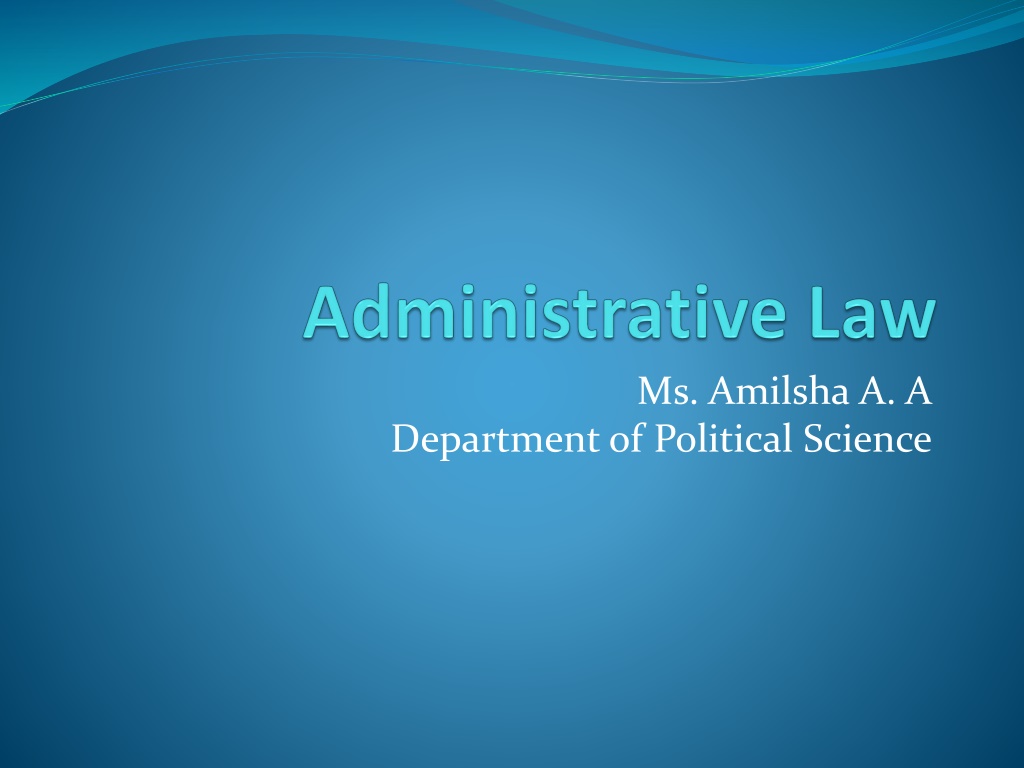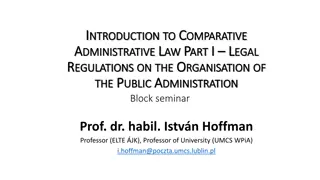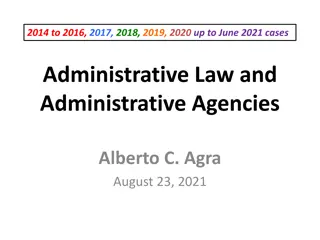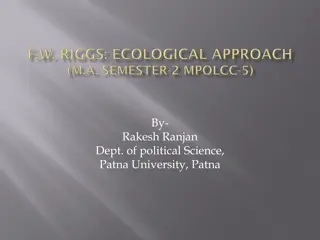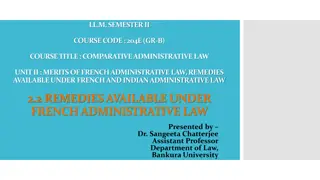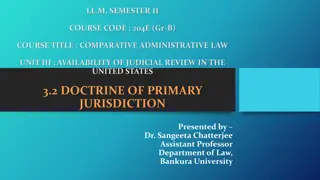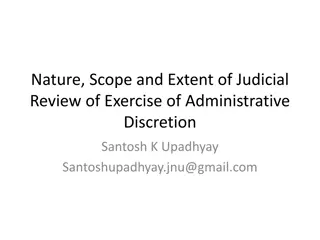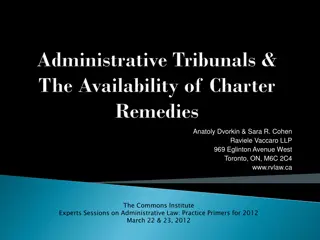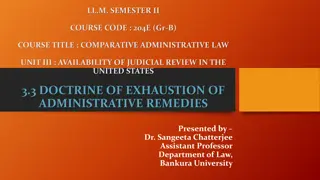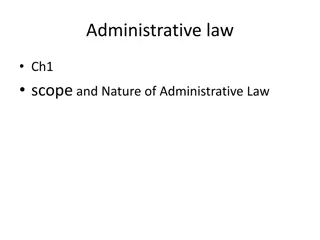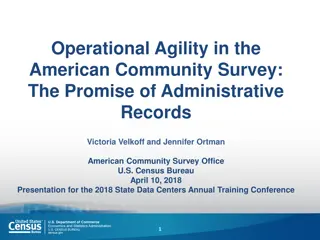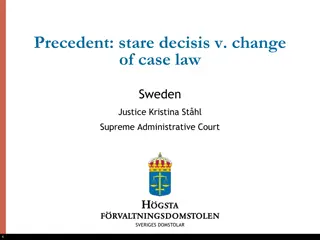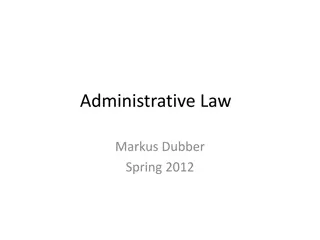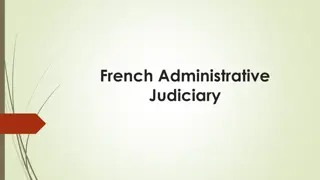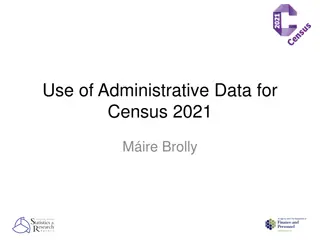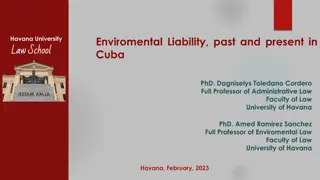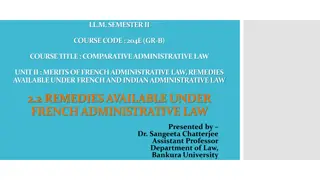Understanding Administrative Law: Definitions and Perspectives
Administrative Law encompasses principles governing public administration, delineating official powers, responsibilities, and remedies for rights violations. Explore insights from notable figures like Barthelemy, Ivor Jennings, and Dicey regarding administrative law's breadth, structure, and application in different jurisdictions.
Download Presentation

Please find below an Image/Link to download the presentation.
The content on the website is provided AS IS for your information and personal use only. It may not be sold, licensed, or shared on other websites without obtaining consent from the author. Download presentation by click this link. If you encounter any issues during the download, it is possible that the publisher has removed the file from their server.
E N D
Presentation Transcript
Ms. Amilsha A. A Department of Political Science
Administrative Law In its broader sense, Administrative Law is understood as the whole body of law relating to public administration. According to Barthelemy, Administrative law is the sum total of the principles according to which the activity of the service (other than judicial) concerned with the execution of law is exercised.
In a narrower sense, administrative law is the law of official powers and responsibility, or the law which determines the amount of administrativeofficers and agencies. discretion permitted to
Definitions of Administrative Law Ivor Jennings. Administrative law is the law relating to the administration. It determines the organisation, powers and duties of administrative authorities and indicates to the individual remedies for the violation of rights . According to Garner, administrative law consist of those rules which are recognised by the courts of law and which relate to and regulate the administration of government .
Dicey on Administrative Law Dicey a celebrated English writer- in his famous work, Law of the administrative law, with that part of the French Droit Adminidtratif according to which actions by the citizens against officials for wrongful acts committed in their official capacity, are tried, nor by ordinary courts of law but by special administrative courts manned bycivil servants. Since there existed no such system in England, Dicey denied the existence of administrative law in that countryaltogether. Constitution, identified
Dicey pointed out three distinguishing features of Droit Administratif. Firstly, according to it, the rights of the states are determined by a special body of law which are not applicable to the citizens. Secondly, the ordinary courts have no jurisdiction in cases in which the state or state officials in their official capacity are a party. Such cases are tried by administrative courts consisting of officials instead of judges.
Thirdly, as an inference from the arrangements, Dicey thought that a special protection was given to officials in France for wrongful acts done in the course of their duty.
Criticism of Diceys Views Dicey s view that the French Droit Administratif gave a special protection to officials and the state in their dealing with the citizens and their rights and claims, was an inference from the official composition of administrativecourts. Dicey s statement that under the English rule of law the administrative autoritiesand the private citizens had equality before law and the former possessed no special advantage, is also incorrect.
Diceys third argument of rule of law that the constitution instated of being the source of citizen s right is theirresult, is also not quitecorrect. Only a very small part of the English constitutional law has grown out of the decisions of courts concerning the rights of individuals. The bulk of it is found on customs, traditions, and statutory.
Sources of Administrative Law the constitutionof the country the enactments or status and resolutions of the legislature Charters granted by the legislatureor theexecutive Ordinances, rules, regulations, orders or decisions issued by the administrative Authorities Customsand conventions Judicial decisions.
